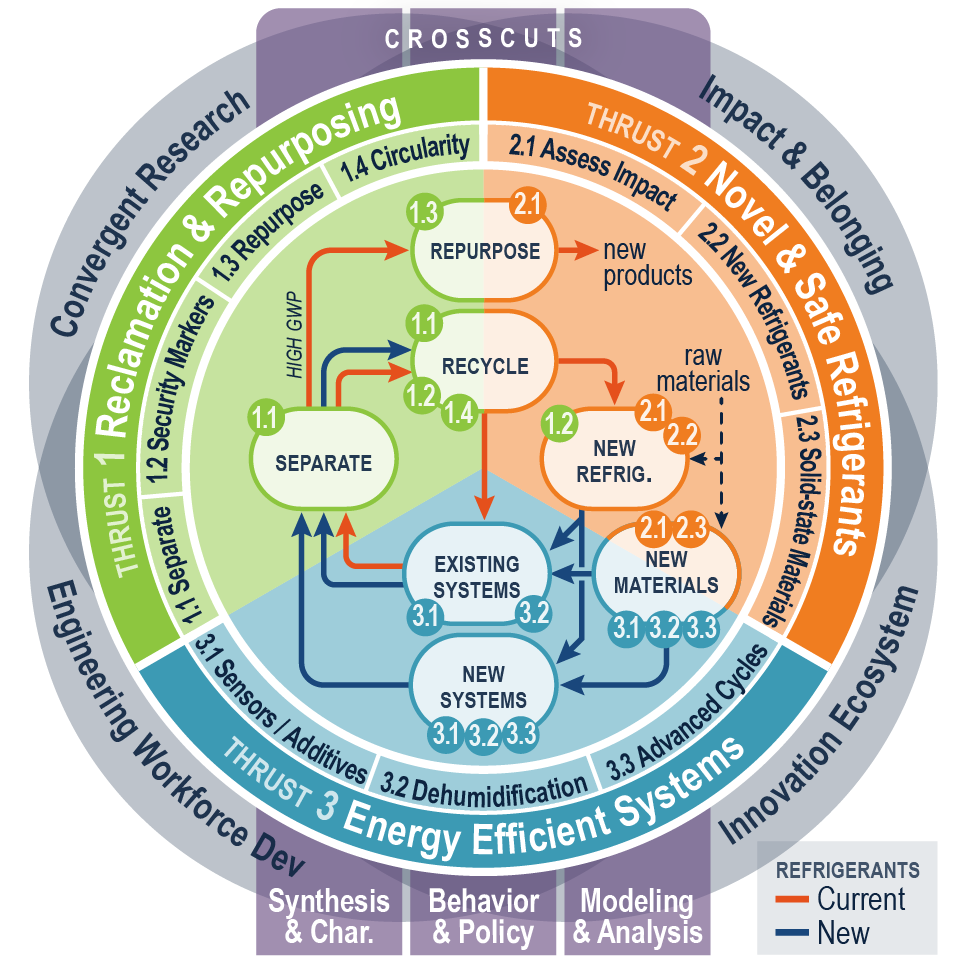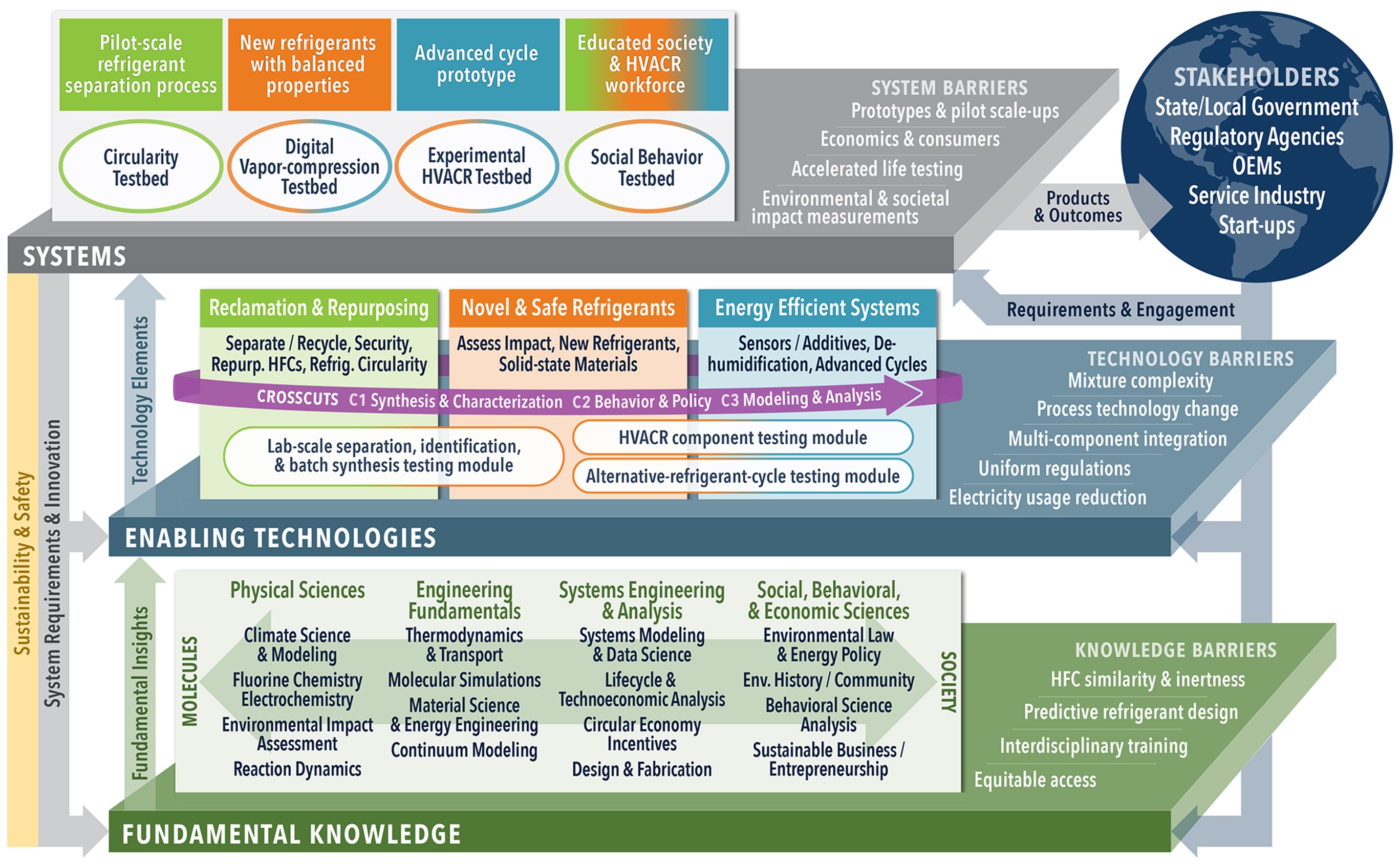Research Overview

EARTH will confront the scientific, engineering, social, economic, and political issues that are critical to addressing the continually evolving challenges facing the refrigeration and air conditioning ecosystem
1. Develop “transformative refrigerants” that have a balance of properties such as environmental, toxicity, flammability, stability, energy efficiency, system complexity, price, recyclability, and long-term availability
2. Promote the recycling of refrigerants (e.g. billions of kilograms are in use today) so that blend components can be recovered as pure compounds and reused in new more environmentally friendly formulations or repurposed into new materials that are environmentally safe and uniquely functional
3. Develop next-generation cooling technologies with higher energy efficiency than current vapor-compression technologies using high fidelity experiments, advanced atomistic simulations, data science methods, and rigorous process design
EARTH will create the first sustainable refrigerant lifecycle engineered system that tackles the technical, environmental, and societal challenges of the Heating, Ventilation, Air-conditioning, and Refrigeration (HVACR) industry that aligns with national research ideas and the importance of chemical research to the U.S. economy.

